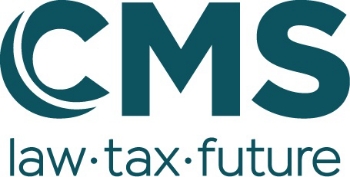The Federal Cartel Office (FCO) recently imposed a €300,000 fine on a manufacturer of portable navigation devices for enforcing resale price maintenance on retailers.
This case is another example of the fact that resale price maintenance is strictly prosecuted by the FCO. It also bears testament to the close cooperation between national authorities within the European Competition Network.
According to an FCO press release, from July 2009 to May 2014 representatives of a well-known producer of portable navigation devices agreed with several retailers that the retailers would not sell the devices below certain end-customer prices. The FCO stated that in 2007 individual price agreements were in place for navigation devices sold under the Becker and Falk brands.
The company had installed a price-monitoring system, with particular regard to online retailers. According to the FCO, as soon as a retailer's price dropped below a certain level, the retailer was contacted and asked to maintain the prescribed price level. For this purpose, the company had introduced a 'street price' as an indicator of the price level it considered acceptable. Along with this non-binding price recommendation, the retailers were informed of the price-monitoring system. The FCO's investigations showed that most of the retailers raised their prices after having been contacted by the company.
The FCO's investigation revealed that resale price maintenance was also achieved by other means. In particular, resale prices were increased under the threat of either a refusal to supply or legal action based on the allegation of unauthorised use of copyright material. Softer means were also utilised, such as the granting of advantages in the form of a bonus for price increases. The law prohibits even non-dominant companies from making unilateral threats or offering such incentives, allowing the FCO to leave open the often difficult distinction between unilateral acts and agreements.
The proceedings were launched following the receipt of information available to the Austrian competition authority. On this basis, the FCO conducted a dawn raid at the Germany-based company; the case ultimately ended in a settlement decision.
While vertical restraints may not be the enforcement priority of all European competition authorities, this decision makes clear that vertical restraints remain a focus for the FCO. The decision continues a long line of recent decisions regarding resale price maintenance.
The decision may also herald a large number of future proceedings which could affect the result of the European Commission's e-commerce sector inquiry launched in May 2015.
The €300,000 fine appears surprisingly modest for FCO resale price maintenance cases. This is due to the circumstances of this particular case and should not be regarded as an indication that fines will be equally low in future cases. The FCO explained that the company's limited financial capacity was taken into account. The company also cooperated extensively with the authority and agreed to enter into a settlement with the FCO.
Companies should therefore continue to take care when communicating recommended resale prices. They should not exert pressure or offer incentives for dealers to maintain a certain price level or comply with price recommendations. Reminding management and sales staff of these principles in regular compliance workshops appears to be a prudent measure.
This case was not initiated in the ordinary way, as a result of dealers complaining against the restrictions imposed on them by manufacturers. Rather, the FCO was informed by the Austrian competition authority about suspicions of resale price maintenance in Germany. On this basis, the FCO started its own proceedings, including a dawn raid. With a well-functioning information exchange between national competition authorities, companies should remember that competition law infringements in one country often have a spill-over effect into other countries. In turn, this means that company compliance activities should not stop at the border.
For further information on this topic please contact Thomas Grünvogel at CMS Hasche Sigle by telephone (+49 89 23807 250) or email ([email protected]). The CMS Hasche Sigle website can be accessed at www.cms-hs.com.
This article was first published by the International Law Office, a premium online legal update service for major companies and law firms worldwide. Register for a free subscription


